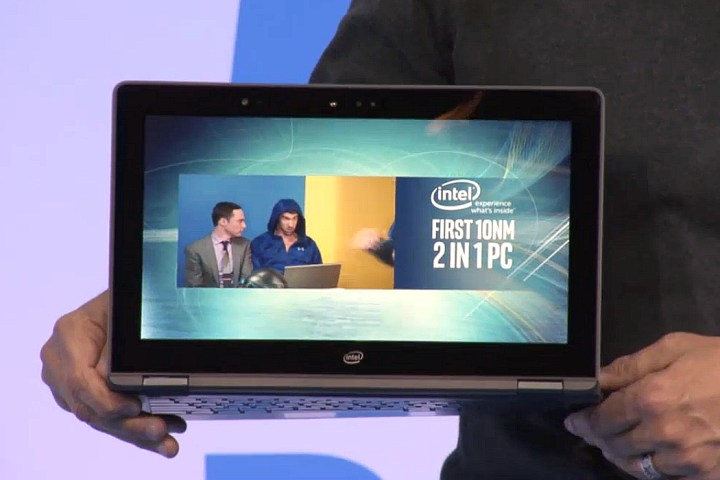
“We’re on track to ship our first low-volume 10-nanometer part by the end of the year,” he said. “That will be followed by the initial ramp in the first half of 2018, with both high volume and system availability in the second half of 2018.”
Intel’s initial batch of Cannonlake chips could very well appear toward the end of December just before the holidays, and the CES 2018 technology convention in Las Vegas right after New Year’s. The architecture will be based on Intel’s latest Coffee Lake design, but reside on a smaller form factor using 10nm process technology. That simply means Intel can use smaller parts than what is crammed in the current Coffee Lake processors to create a high-performance chip that could easily reside in a super-ultra-thin device.
Cannonlake won’t be the first time Intel will shrink a current processor design. Intel made a similar move in 2014 when it released its fifth-generation processors codenamed “Broadwell.” With this processor family, the company took its fourth-generation processor design based on 22nm process technology, aka “Haswell,” and shrunk it down using the 14nm process node. For the record, Cannonlake will be Intel’s first use of the 10nm process node.
But while Intel branded Haswell and Broadwell as generational releases, that doesn’t appear to be the plan with Cannonlake given the company is just now rolling out eighth-generation desktop processors. Adding to that, Intel dropped its “tick-tock” design/manufacturing model with the launch of its Kaby Lake processors. Thus, Intel’s ninth-generation chips based on the 10nm+ node will supposedly fall under the “Ice Lake” code name.
Confused? Here’s a chart to better explain some of the code names and their time frames:
| Generation | Year | Processor Number | Code-Name | Process Node |
| 3 | 2012 | Core ix-3xxx | Ivy Bridge | 22nm |
| 4 | 2013 | Core ix-4xxx | Haswell | 22nm |
| 5 | 2014 | Core ix-5xxx | Broadwell | 14nm |
| 6 | 2015 | Core ix-6xxx | Skylake | 14nm |
| 7 | 2016 | Core ix-7xxx | Kaby Lake | 14nm+ |
| 8 | 2017 | Core ix-8xxx | Coffee Lake | 14nm++ |
| 8 | 2018 | Core ix-8xxx | Cannonlake | 10nm |
| 9 | 2019 | Core ix-9xxx | Ice Lake | 10nm+ |
Intel first introduced us to Cannonlake at the beginning of 2017. Since then, it has only appeared in slides mapping out the company’s processor rollout schedule. Over the last year, Intel’s fourth-quarter 2017 stance hasn’t changed regarding Cannonlake and the conference call solidifies the company’s promise to deliver the chip by the end of December. But as Krzanich pointed out, don’t expect to see a large number of devices sporting the upcoming 10nm processor until this time next year.
Meanwhile, Intel’s eighth-generation processors for desktops are rolling out now, aka Coffee Lake-S. They follow the notebook-focused models introduced in August just before the solar eclipse, aka Coffee Lake-U.


